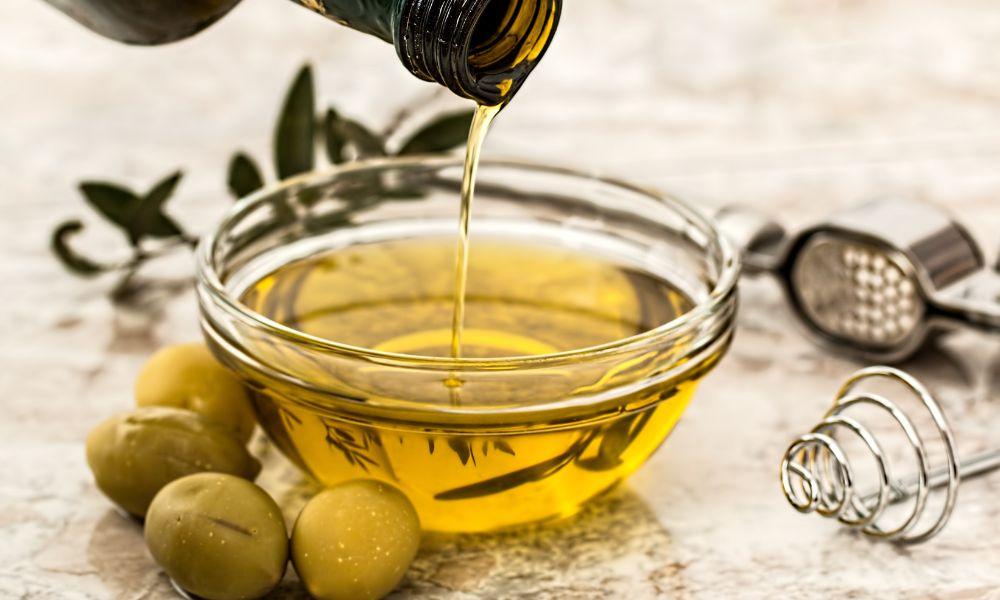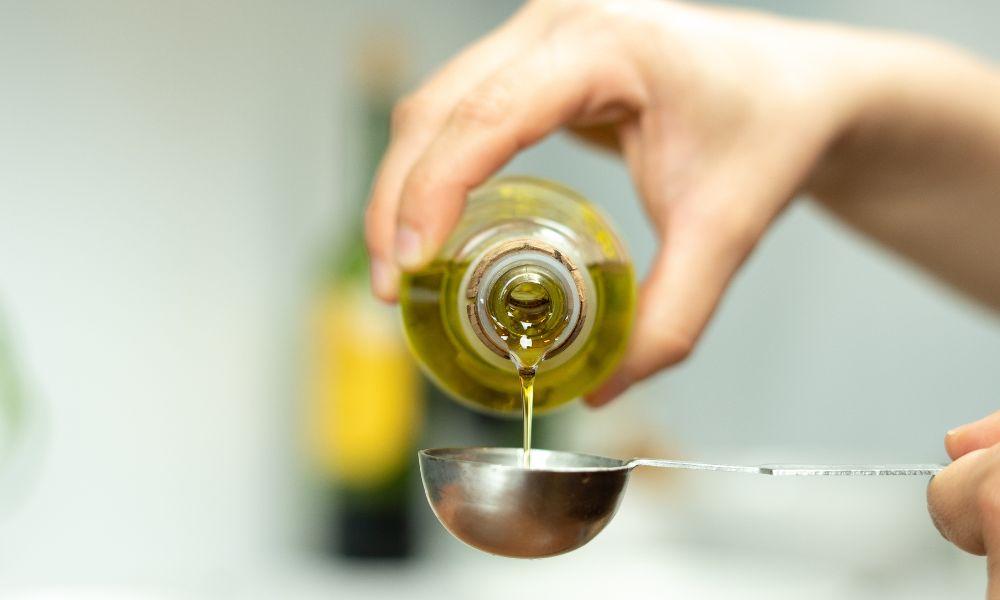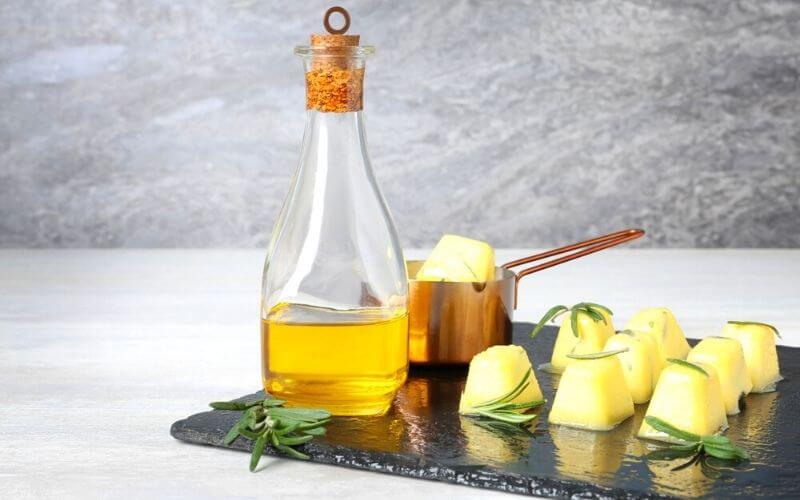As someone who has been using olive oil for cooking for many years, I’ve often found myself pondering whether or not to store my trusty bottle of liquid gold in the refrigerator. Like many others, I’ve been curious about the effects of refrigeration on the quality, flavor, and shelf life of olive oil. Can olive oil be refrigerated?
The short answer is yes, but with some caveats. In this article, we’ll dive deep into the world of olive oil storage, drawing from my personal experiences, as well as exploring the pros and cons of refrigeration, and sharing some best practices to keep your oil fresh and flavorful.
Can Olive Oil Be Refrigerated? The Cold, Hard Facts

Understanding the chemical composition of olive oil
To comprehend how temperature affects olive oil, it’s essential to understand its chemical makeup:
- Monounsaturated fats: Olive oil is rich in monounsaturated fats, which are known to be heart-healthy and help reduce LDL (bad) cholesterol levels.
- Polyphenols and antioxidants: These compounds give olive oil its distinctive flavor and contribute to its numerous health benefits. They also help protect the oil from oxidative damage.
The impact of temperature on olive oil
- Effects of cold temperatures: When exposed to cold temperatures, olive oil can become cloudy and solidify, leading to changes in its texture. However, this process is reversible, and the oil will return to its liquid state once it reaches room temperature.
- Optimal storage temperature range: The ideal temperature range for storing olive oil is between 57°F (14°C) and 70°F (21°C). Maintaining this range helps preserve the oil’s flavor and extend its shelf life.
The Pros and Cons of Refrigerating Olive Oil
Potential benefits of refrigeration
- Prolonging shelf life: Refrigeration can slow down the oxidation process, potentially extending the oil’s shelf life.
- Slowing down oxidation: By keeping olive oil at cooler temperatures, you can reduce the rate of oxidation, preserving its quality and health benefits.
Possible drawbacks of refrigeration
- Changes in texture and appearance: As mentioned earlier, refrigeration can cause olive oil to become cloudy and solidify, altering its texture. This change is temporary and reversible.
- Flavor alterations: Cold temperatures can sometimes mute the flavors of olive oil, so it’s recommended to let the oil return to room temperature before using it in recipes where its flavor is crucial.
Best Practices for Storing Olive Oil

Proper containers
Dark glass or stainless steel: Store olive oil in dark glass or stainless steel containers to protect it from light exposure, which can degrade its quality.
Avoiding plastic and clear containers: Plastic and clear glass containers can allow light to penetrate, accelerating the oil’s degradation.
Ideal storage conditions
Cool, dark places: Keep olive oil in a cool, dark place away from direct sunlight and heat sources.
Avoiding heat, light, and air exposure: Minimize olive oil’s exposure to heat, light, and air, as these factors can cause it to spoil more quickly.
Recognizing and Preventing Olive Oil Spoilage

Signs of rancidity
- Off odors: Rancid olive oil may have an unpleasant smell, often described as crayons, putty, or even old peanuts.
- Unpleasant taste: The taste of rancid olive oil may be bitter, metallic, or simply off, and it won’t have the fruity or peppery notes of fresh olive oil.
Tips for preserving freshness
- Buying in small quantities: Purchase olive oil in smaller quantities that you’ll use within a few months to ensure it stays fresh.
- Properly sealing containers: Keep the container tightly closed to minimize exposure to air, which can cause the oil to oxidize and spoil.
The Role of Freezing Olive Oil
Freezing for long-term storage
- Benefits and drawbacks: Freezing olive oil can extend its shelf life, but it may alter the texture and cause some loss of flavor. Check out our article on freezing olive oil for more information.
- Guidelines for freezing: To freeze olive oil, pour it into an airtight container, leaving some room for expansion, and store it in the freezer.
Using frozen olive oil
- Thawing process: To use frozen olive oil, let it thaw at room temperature or place the container in a bowl of warm water to speed up the process
- Cooking and drizzling applications: Once thawed, you can use olive oil for cooking, drizzling over salads, or adding flavor to your favorite dishes.
Debunked Myths About Olive Oil Storage
The impact of temperature fluctuations
While it’s true that consistent temperature is essential for preserving olive oil’s quality, occasional fluctuations in temperature (such as those experienced during shipping) are unlikely to cause significant damage to the oil.
The necessity of refrigeration for unopened bottles
Refrigeration is not necessary for unopened bottles of olive oil, as long as they are stored in a cool, dark place away from heat and light.
The role of oxygen in olive oil degradation
Oxygen plays a role in the degradation of olive oil, but its impact is less significant than heat and light exposure. Still, it’s essential to keep containers tightly sealed to minimize oxidation.
Summary
In conclusion, refrigerating olive oil can be both beneficial and detrimental, depending on various factors. By considering the pros and cons, along with following proper storage guidelines, you can ensure that your olive oil stays fresh and flavorful for as long as possible. And remember, when in doubt, always trust your senses: if your olive oil smells or tastes off, it’s time to replace it.
FAQs
How long does olive oil last?
Olive oil typically lasts 18-24 months from the date of production if stored properly[^24^]. However, once opened, it’s best to consume the oil within 3-6 months[^25^].
Can you freeze olive oil for long-term storage?
Yes, you can freeze olive oil for long-term storage, but be aware of the potential changes in texture and flavor. See our in-depth article for more information.
How can you tell if olive oil has gone bad?
Signs of spoilage include off odors, an unpleasant taste, and a lack of fruity or peppery notes[^26^]. If you suspect your olive oil has gone bad, it’s best to discard it and purchase a fresh bottle.


